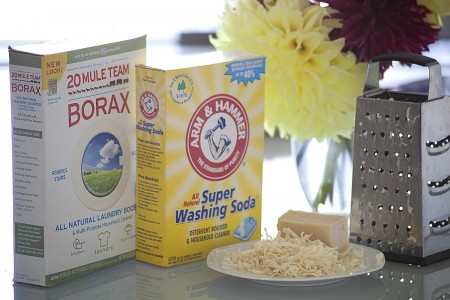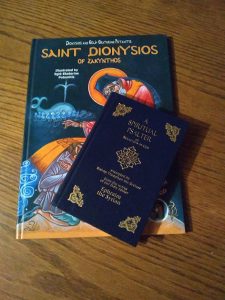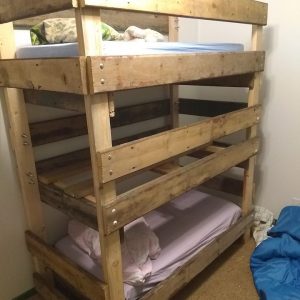
I made my own laundry soap once or twice before I got married using this recipe. After we got married, Courtney began using this recipe as well, and has been making her own laundry soap ever since. After she taught herself to make her own bar soap using lard, lye, and water, she stopped buying Fels-Naphta and began using her own bar soap. This results in a totally unscented laundry soap, while the Fels-Naphta gives a nice subtle piney scent.
Here’s the recipe:
1 box of Borax
1 box Super Washing Soda
1 box Baking Soda
3 bars of Fels-Napha soap, shredded on a cheese grater, OR 1 lb grated homemade soap
Mix well in a large bowl or tub, then portion into smaller containers (Mason Jars work well). Use 1-2 tablespoons per load. Mason Jars of laundry soap that sit for a long time before use may have the soap shreds settle to the bottom, in this case shake or mix well before use.
Some blogs say that homemade laundry soaps don’t clean well, destroy laundry machines, or leave a soap residue in clothes. None of these are necessarily true, however, there are a few tips that you should use with this recipe.
First, fill the fabric softener compartment with white vinegar. Second, always use the warmest water and longest cycle suitable for the fabric. Third, always use the extra rinse cycle. Here’s why you want to do these things:
Why should you add vinegar to the fabric softener compartment? Because your clothes likely have a lot of bacteria on them. These bacteria create smells, which are masked by the artificial fragrances in your commercial laundry soap. Without the masking of artificial fragrances, you can get a musty smell in your clothes from this bacteria. The vinegar will kill these bacteria and fight the odor at the source, rather than just masking it.
Why should you use the warmest water and longest cycle suitable for the fabric? Because the soap shreds need to be completely dissolved in order to get maximum cleaning. Also the Borax cleans by soaking, so the longer the clothes soak in the Borax, the better. Hotter water dissolves the soap faster, meaning that it is dissolved for more of the cycle.
Finally, why use the extra rinse? This is to ensure that the soap is fully rinsed out. If the soap doesn’t dissolve fully until partway through the cycle, it may not rinse out fully with the normal rinse cycle. The extra rinse makes sure that all soap residue is rinsed out. we haven’t used a commercial laundry soap in over three years, and are still happy with our economical and effective laundry soap.



